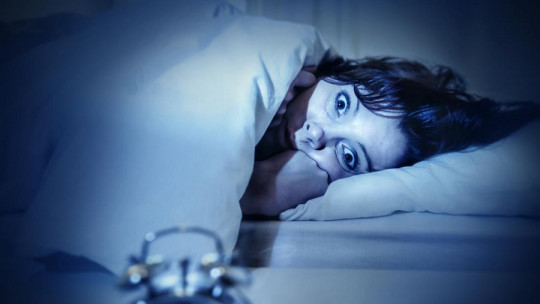
Unlike what happens with other anxiety disorders, which are characterized by paralyzing people who suffer from them, High-functioning (or high-functioning) anxiety is identified as having the opposite effect.
People who suffer from it experience a greater propensity to move and not remain in a state of paralysis, and although at first glance this seems beneficial only by not staying “still”, in cases like this not treating the origin of the anxiety It can be very harmful.
Symptoms of High Functioning Anxiety
Common symptoms of anxiety may also be very present in people with high-functioning anxiety; These include catastrophic thinking, excessive worry and irritability.
But there is also symptoms that may be considered more specific to high-functioning anxiety and that it is important to review. Let’s see what they are.
1. Perfectionism
It is characterized by the unrealistic expectations that the person who suffers from this type of anxiety imposes on themselves, commonly with an “all or nothing” mentality or “if I am not the best of all, then I am the worst of all.” Where at the moment of not seeing your expectations fulfilled you find great frustration.
2. Fear of disappointing others
Internal dialogue is usually negative, constant and intrusive; This is an undeniable symptom of high-functioning anxiety. The same way, The feeling that you are letting down the people around you is very common.
3. Display control patterns
You can manifest perfectionism through controlling habits and establishing strict routines. However, this is the way to make yourself feel more in charge of your life. In high-functioning anxiety, missing a single day of physical training or using the wrong color pen can disrupt your day or make you feel bad.
4. Being constantly busy
Your to-do list is gigantic, and your weekends are always packed with plans, but that pleases you, right? You find yourself constantly joking about how you always have to be busy to feel fulfilled and happy, because having something to do constantly distracts you from what will happen when you finally stop and are alone with your own thoughts.
5. Not knowing how to say no
This symptom arises from the constant fear of disappointing those around you, and from your certainly impossible standards that lead you to accept more than you can probably handle.
You are never able to say no to projects at work, social plans or even helping a friend.even though you feel stretched to the maximum of your capacity.
6. Not sleeping well
The turning and sudden movements are constant during the night and can be a reflection of what happened during the day. The anxiety that you have hidden, repressed and ignored throughout the day can manifest itself in the form of sleep disorders during the night.
7. Pain and repetitive habits
There are physical manifestations of your mental state that are expressed successively, such as that constant emptiness in your stomach or seemingly unexplained neck pain.
Constantly biting your nails or lip, keeping your foot moving, or cracking your knuckles more frequently These are signs that your repressed anxiety is probably escaping, like a balloon that gets fuller and fuller until it bursts.
8. Do not explain your anxious feelings to anyone
People routinely describe you as unwavering and emotionless; However, you know very well that that couldn’t be further from the truth. You try to keep your anxiety bottled up inside and hide your emotions. in an attempt to think more rationally.
What can you do if you notice that you have High Functioning Anxiety?
The main difference between regular anxiety and high-functioning anxiety is that people who live with high-functioning anxiety feel the desire to achieve more, as a way to manage your fears and worriesbut this may not solve the real anxiety problem behind
If you identify with this type of disorder, you will notice that it drives you instead of leaving you stunned with fear, and although at first it may not seem bad to you in relation to how your environment observes you, it is very likely that inside you do not feel the same, for which is important to take these tips into account.
1. Develop your attention span
Learning attention skills is very useful for those living with high-functioning anxiety, as these They help you focus on the present instead of thinking about the worst-case scenarios you imagine about what will happen..
2. Take care of your sleeping patterns
Sleep hygiene is important to have a day without physical and mental exhaustion. So, It is advisable to have a well-defined time to sleep. If you are not sleepy, it is also advisable to get up and not leave your mind racing while in bed; Better do an activity until you feel tired.
3. Observe your thinking patterns
Anxiety involves a lot of negative predictions that will probably never come true.. Try to discard catastrophic thoughts by comparing them to more realistic scenarios.
4. Look for strategies to counteract these nervous habits
Practice deep breathing or progressive muscle relaxation can relieve and control the tension of the moment.

5. Learn to make a competent response to address your nervous habits
This technique consists of perform an action that is incongruent with the nervous habitlike chewing gum to stop you from biting your lips.
6. Ask yourself the reason why you hold on to your anxiety
Are you afraid that if you are no longer driven by anxiety, you will no longer be a competent, hard-working person? Can this happen?
How to help someone with High Functioning Anxiety?
Those people who live with high-functioning anxiety may come to be perceived as very perfectionistic, quite motivated, or lovers of hard work.
Therefore, it is often difficult to seek help for oneself for someone with this type of anxiety, who inside has thoughts of not doing enough and feels a difficulty sharing their feelings with those around them.
For this it is important to reduce stigmaso that those people who suffer from some type of anxiety not only have less difficulty in recognizing their problems but can also be encouraged to share it with someone willing to help them.
As more people share their experience and identify with having high-functioning anxiety, it may become easier to seek professional help. In this sense, Thinking about anxiety in both positive and negative characteristics can help reduce stigma. Everyone needs some degree of anxiety to accomplish the tasks in their life.
When to consult a specialist?
Consult with a psychotherapy or medical professional If you feel identified with the following cases:
- You feel like you are worrying excessively and that it is significantly interfering with your work, relationships, and other aspects of your life.
- The symptoms you suffer cause great internal discomfort that you do not know how to cope with.
- You feel depressed and also have problems with the consumption of alcoholic beverages and hallucinogenic drugs
- You feel that anxiety and worry about perfectionism is affecting you in a physically negative way.
- You are suicidal or have suicidal tendencies (if so, seek emergency treatment immediately)
The symptoms may not go away on their own, or may get worse over time if you do not seek help.. Visit your doctor or a mental health professional with whom you feel confident so as not to let the problem worsen and begin treatment that will help you improve. It will be easier to treat any symptoms if you get help early.
Prevention
Anxiety is a common and normal feeling of fear in the face of threatening or difficult circumstances.. It is estimated that 1 in 10 people suffer from anxiety at some point in their lives. Therefore, anxiety is not necessarily negative, it is actually a defense mechanism that alerts us and motivates us to face dangers, although it can become problematic if it occurs in consecutive, intense episodes for no apparent reason. limiting ourselves on a day-to-day basis.
To prevent some type of anxiety, It is important to adopt a healthy lifestylewith regular physical exercise, especially outdoors, so that it also helps us clear our minds and avoid these anxious feelings.
Likewise, there are several relaxation techniques that can help us combat the appearance of different symptoms when they appear, with the help of specialists or on our own, depending on the degree of help needed in self-implementation.








